One of the most popular and expected celebrations in the world is the carnival. An international festival that is experienced, with intensity, in Europe and almost throughout the Americas.
The carnival is a party full of color and creativity, people wear costumes and participate in elaborate comparsas with different themes that can be enjoyed in massive parades.
Here we will show you in detail how to prepare for this pagan celebration.
What is the carnival?

Carnival is a festivity of Christian tradition that is celebrated before Easter. This festivity depends on the liturgical calendar and begins on Sunday and ends on Tuesday, preceding Lent, which begins the following day with the celebration of Ash Wednesday.
The word carnival has its origin in the Italian language and its meaning is related to the farewell of the meat, as a reference to the Christian tradition that indicates that, for forty days, the consumption of red meat should be avoided.
It is the most celebrated pagan festival in the world and is full of music, fun and lots of colour.
Carnival: where did it all originate?

The origin of these festivities is related to the festivities held in honor of Bacchus, the Roman god of wine, feast and chaos; also because of the celebration that honors the Apis bull in Egypt.
After more than 5,000 years, the custom of celebrating carnival spread throughout Europe to America, brought by Spanish and Portuguese navigators at the end of the 15th century.
Today, Carnival celebrates the Roman feasts of the ancient Saturnals in honor of the god Saturn.
The festival took off from the expansion of Christianity, motivated by the beginning of Lent, a period of forty days dedicated to abstinence, recollection and penance. During these days it is allowed to wear costumes, cover one’s face and maintain anonymity.
In some places, the celebration lasts for more than three days.
Carnival 2020, what day is celebrated?
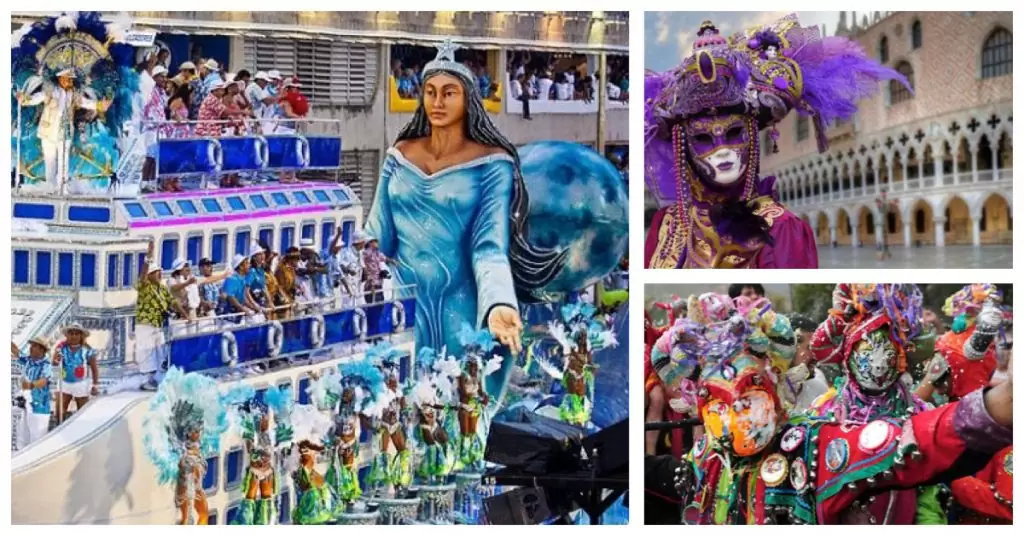
During the year 2020, this colourful festival is celebrated on Sunday 23, Monday 24 and Tuesday 25 February.
A simple way to find out which day carnival is celebrated is by calculating forty days backwards from Palm Sunday.
It is important to emphasize that this festivity will culminate on Wednesday 26 February with the celebration of the liturgy of the imposition of the ashes.
Carnivals around the world
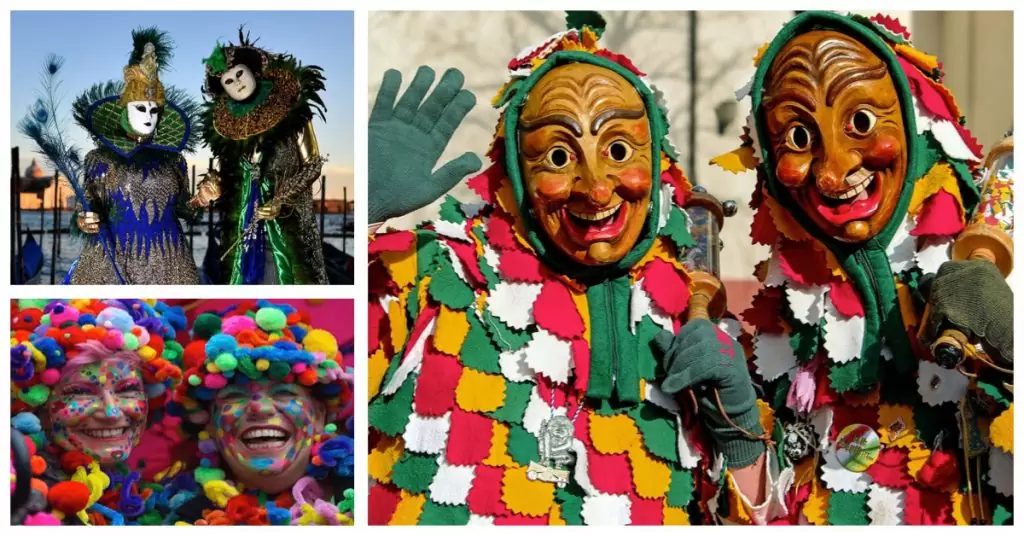
Carnival festivals around the world are held according to the tradition and culture of each region.
And in spite of the differences, they have in common: the convocation, elaboration of comparsas, parades and disguises that have always been present in these festivities.
In Latin America, the carnival is presided over by King Momo, a character named after a Greek god with the same name, who personifies sarcasm, mockery and irony. He is considered the owner of the Carnival, this character is usually tall, fat and with an imposing crown.
In Barranquilla, Colombia, King Momo accompanies the carnival queen.
In Rio de Janeiro, he receives the keys to the city in an act that declares the official start of the Carnival festivities.
The most important Carnival in the world
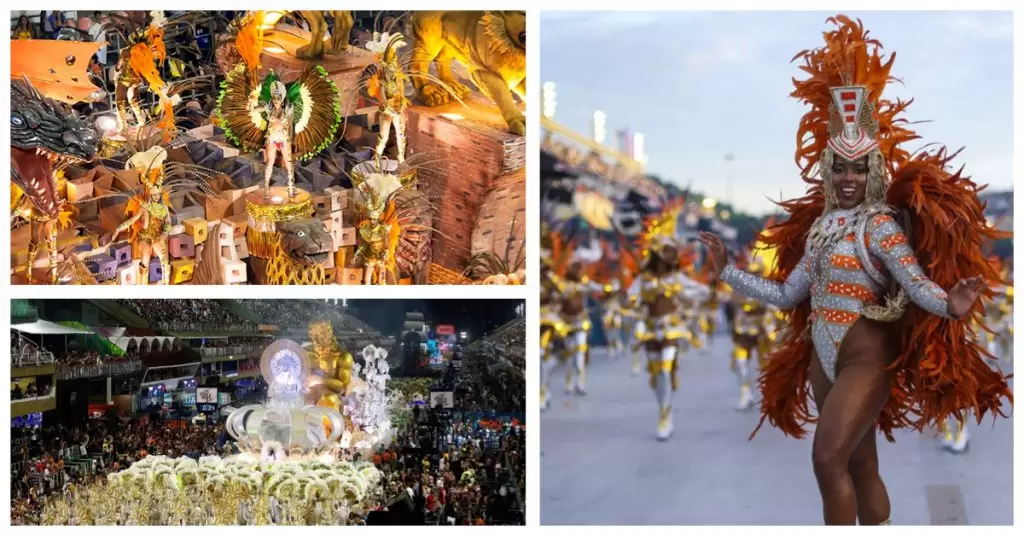
With more than 2 million attendees, the most important carnival celebration in the world is held in Rio de Janeiro, where samba and parades are the protagonists in the sambodromes.
For two days, the city’s most outstanding samba schools perform in the parades of the comparsas with very elaborate, colourful stages and dances that emphasise the authentic Rio style.
Colombia and its festivals in Barranquilla

The Barranquilla Carnival was declared Oral and Intangible Heritage of Humanity by UNESCO in 2003 and Cultural Heritage of the Nation in 2001 by the Congress of Colombia.
Among the activities that take place are: the coronation of the queen, the great parade of the floats and costumes, and competitions between musical groups.
Another of the most important festivities celebrated in Colombia is the Riosucio Carnival, Oral, Cultural and Intangible Heritage of the Nation that integrates the indigenous, African and European culture.
The Riosucio Carnival is structured as a dramatic poem written by carnival-goers with an outstanding literary ability. This poem is composed by:
- The decree: mandate in verse where humorous critics are made.
- The invitation: a theatrical convocation prior to the carnival party.
- The shawm: musical group that animates the carnival and consists of maracas, flutes, bass drum and snare drum.
- Las corralejas: popular bullfighting festival.
Festivals in Binche, Belgium
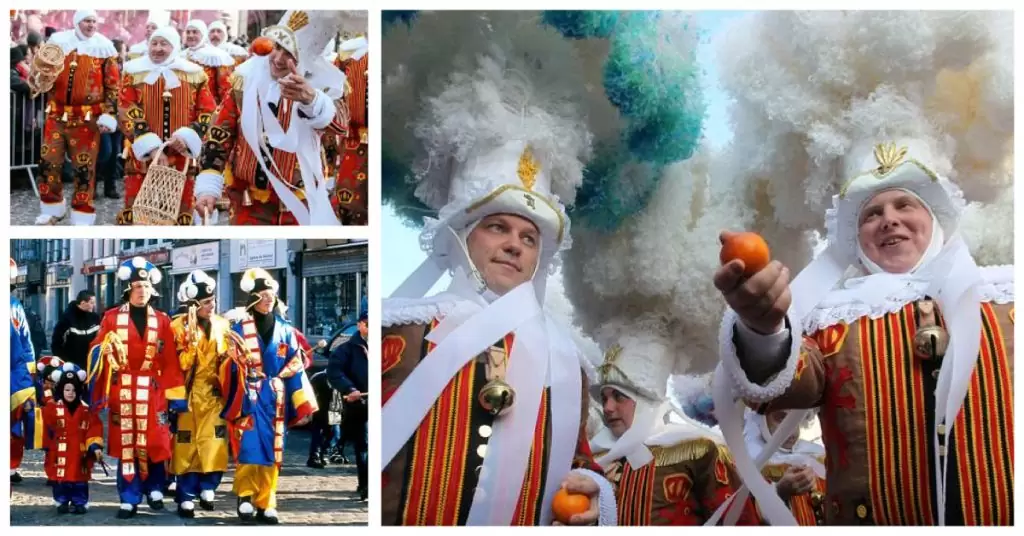
It’s one of the oldest carnivals in Belgium. In 2003, UNESCO proclaimed it a “Masterpiece of the Oral and Intangible Heritage of Humanity” and in 2008 it was included on the “Representative List of the Intangible Heritage of Humanity“.
The festivities of Binche are characterized by the presence of characters called “gilles”, dressed in traditional costumes who come out into the streets to throw red oranges at the crowd.
New Orleans and its carnivals of necklaces
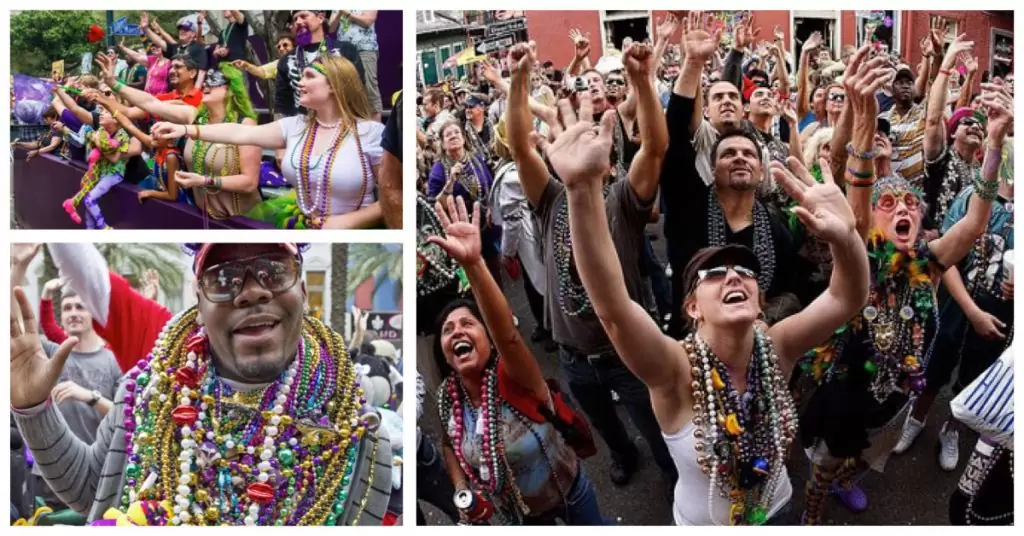
Mardi Gras is one of the most famous celebrations in New Orleans, USA.
During the celebration you can see floats, masked balls and the famous necklaces that are given away in the streets. The use of these dates back to the 19th century, when they were made with crystals from Czechoslovakia.
Nowadays, the necklaces are made with coloured plastic beads, which are more resistant and cheaper.
The Mardi Gras celebration ends with the meeting of the queen and the king, who bid farewell to the carnival with a dance in the city’s municipal auditorium.
Carnivals in Spain
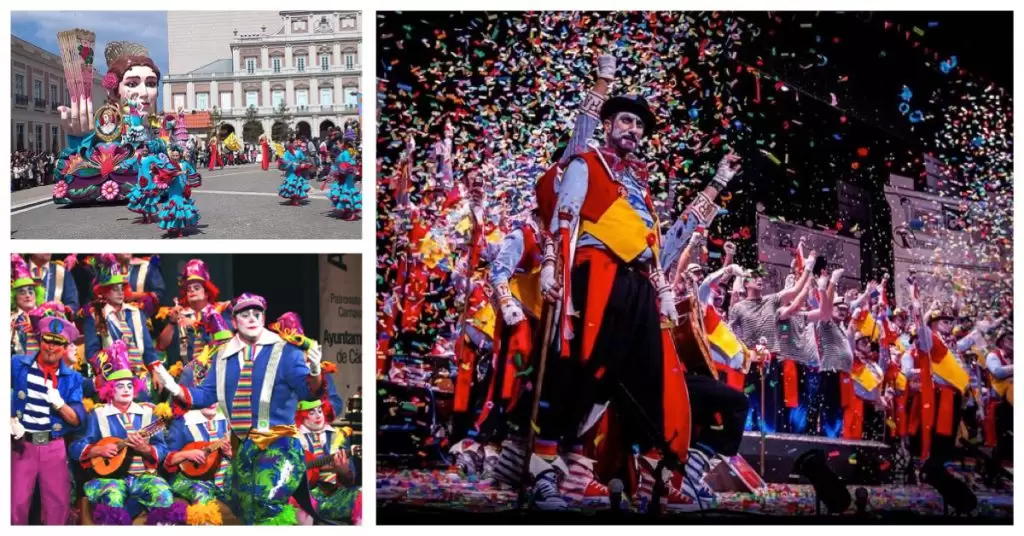
This celebration has a special tradition for the Jueves Lardero (late Thursday) and has festivals of tourist interest recognized as the Carnival of Cadiz, Santa Cruz de Tenerife and Las Palmas de Gran Canaria.
The carnival of Cadiz includes festivities that last eleven days with competitions, gastronomic events, horseback riding, masked balls, tablaos and fireworks, among other activities. From the first Thursday until Sunday, a marquee is set up where the fancy-dress balls will be presented.
The Santa Cruz de Tenerife Carnival is considered the second most famous carnival in the international arena, after the Rio de Janeiro Carnival. It has two events: the official one and the carnival in the street.
The official carnival presents more than 100 groups and has components such as: murgas, costume groups, comparsas and musical groups.
On the other hand, the street carnivals are led by the citizens who attend the celebration.
Every year in the carnivals of Santa Cruz de Tenerife they present different themes that show outstanding exhibitions, giving rise to numerous recognitions.
The carnivals of Las Palmas de Gran Canaria are the oldest festivals in Spain, having been declared a Festival of Tourist Interest in the Canary Islands and of National Tourist Interest.
These festivals include murgas, performances by groups in costume, comparsas, choreographies and the Gala de Elección de la Reina and the Gala de Elección del Drag Queen.
The celebration ends with a ceremony called the Burial of the Sardine, which consists of a parody of a funeral procession that ends with the burning of a symbolic sardine.
Are you ready to organize your carnival party?

The celebration of carnival invites us to fill our lives with joy and color.
At Monouso, we have the ideal solution for organising your carnival party: practical, fun and colourful tableware. Ideal to celebrate the carnival without worrying about long cleaning tasks at the end of the party.
With designs, sizes and bright colors, the disposable carnival tableware guarantees an unbeatable experience in serving your guests.


